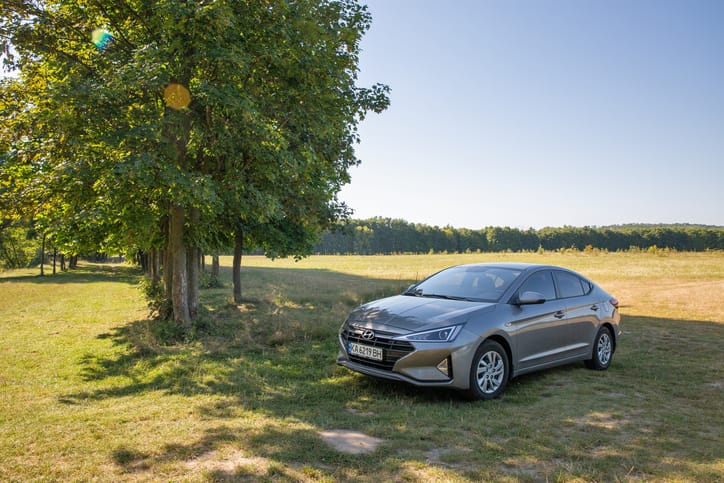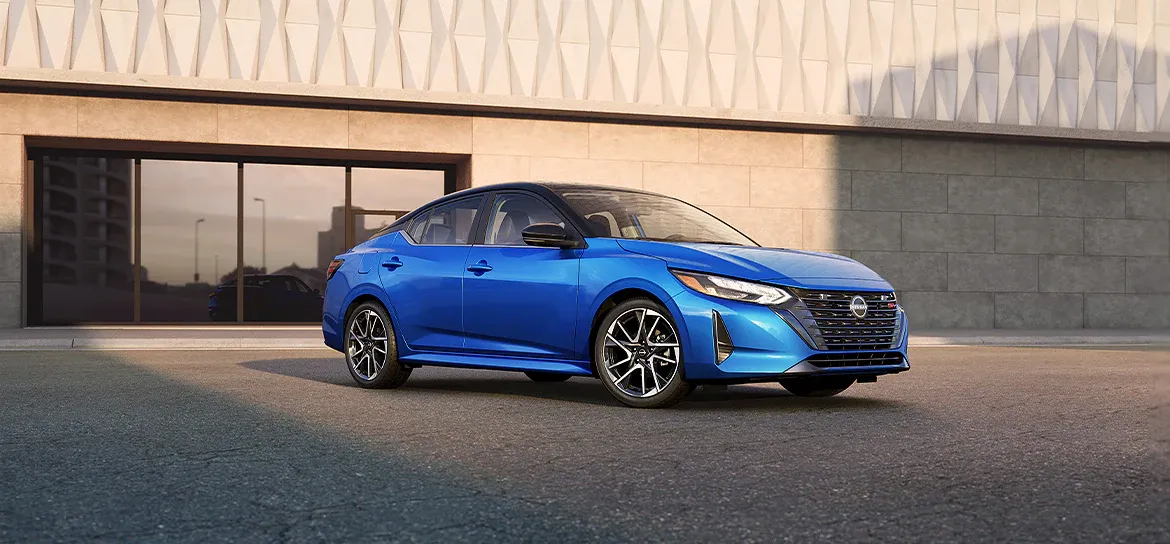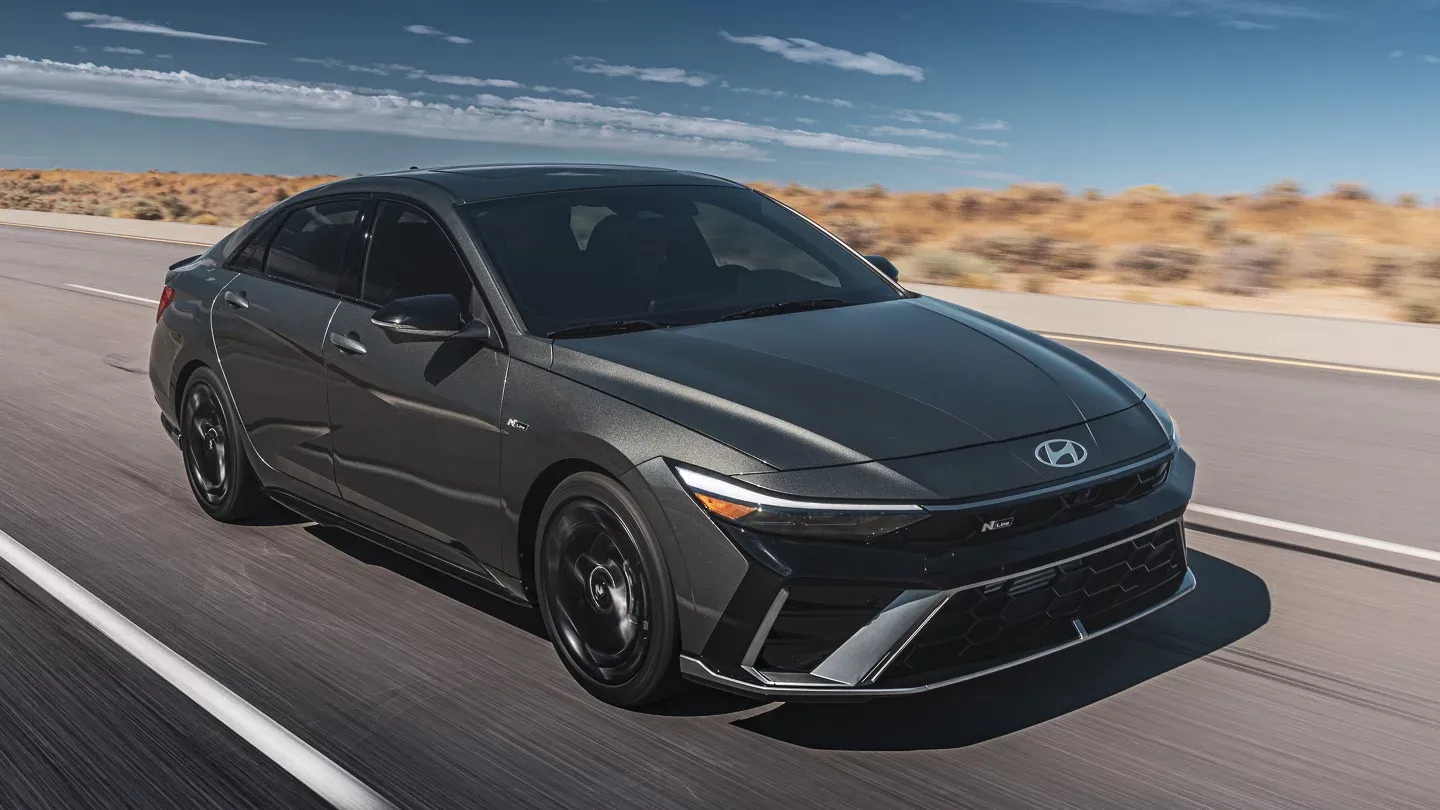The Showdown: Budget-Friendly Family Sedan - Nissan Sentra vs. Hyundai Elantra

In the realm of family sedans, the Nissan Sentra and Hyundai Elantra have carved a niche as reliable, affordable options for growing families. But with both boasting significant redesigns in recent years, choosing between them can feel like splitting hairs. This comprehensive guide dives into the nitty-gritty aspects of both vehicles, helping you navigate features, performance, space, and value to pick the perfect fit for your family's needs.
Price and Value:
The Elantra boasts a slight edge in terms of starting MSRP, coming in at $20,599 compared to the Sentra's $21,988. However, price shouldn't be the sole deciding factor. Both vehicles offer a range of trim levels with varying features, so it's crucial to compare options within your budget. Let's explore some standard features across their base trims:
- Sentra S: 1.8L 4-cylinder engine, automatic transmission, 16-inch alloy wheels, 8-inch touchscreen infotainment system with Apple CarPlay and Android Auto, push-button start.
- Elantra SE: 2.0L 4-cylinder engine, automatic transmission, 15-inch alloy wheels, 8-inch touchscreen infotainment system with Apple CarPlay and Android Auto, remote keyless entry.
While the Sentra offers a slightly larger engine, the Elantra counters with remote keyless entry, a feature typically missing in base trims. When comparing higher trims, the Elantra starts to pull ahead in terms of standard features like heated seats and a sunroof. Keep in mind that these features often come at a price bump, so prioritize based on your needs.
Warranty:
Hyundai shines with its industry-leading warranty, offering a 10-year/100,000-mile powertrain warranty and 5-year/60,000-mile comprehensive warranty. Nissan offers a 3-year/36,000-mile powertrain warranty and 3-year/36,000-mile comprehensive warranty. This substantial difference can significantly impact long-term ownership costs, especially if you plan on keeping the vehicle for a decade.
Fuel Economy:
Both sedans offer competitive fuel efficiency in their base trims. The Sentra edges out the Elantra with an EPA-estimated 30 mpg city/39 mpg highway, while the Elantra comes in at 28 mpg city/37 mpg highway (figures may vary depending on options). However, the Elantra offers a hybrid powertrain option that delivers an impressive 50 mpg city/54 mpg highway, making it a compelling choice for eco-conscious drivers.

Performance:
Neither car is known for blistering acceleration, but they offer adequate power for daily commutes and highway cruising. The Sentra's 1.8L engine produces 149 horsepower, while the Elantra's base 2.0L engine delivers 147 horsepower. Both offer a comfortable ride, with the Elantra feeling slightly more composed on winding roads.
Interior Space and Comfort:
The Elantra takes the lead in terms of passenger space. Rear-seat passengers will find more legroom and headroom compared to the Sentra. Trunk space is nearly identical in both vehicles, offering enough room for groceries and luggage for weekend getaways. Material quality leans towards the Elantra, with a more upscale feel compared to the Sentra's slightly budget-conscious interior.
Technology and Safety Features:
Both sedans come standard with a suite of driver-assistance features, including automatic emergency braking, lane departure warning, and forward collision warning. However, the Elantra offers a wider range of advanced safety features on higher trims, such as blind-spot monitoring and adaptive cruise control.

Technology-wise, both offer user-friendly infotainment systems with Apple CarPlay and Android Auto. However, the Elantra's larger touchscreen and available digital instrument cluster give it a more modern edge.
The Verdict:
Choosing between the Sentra and Elantra depends on your priorities. Here's a quick breakdown:
- Choose the Sentra if: You prioritize a larger engine and slightly better fuel economy (excluding the Elantra hybrid). Value is paramount, and you're willing to forgo some standard features and a longer warranty.
- Choose the Elantra if: You need more passenger space, prioritize a plusher interior, and value a longer warranty. Advanced safety features and a modern tech suite are important to you. The Elantra hybrid's fuel efficiency is a major draw for eco-conscious buyers.
Ultimately, a test drive of both vehicles is crucial. This will allow you to assess how each car feels on the road, evaluate interior space and comfort for your family whichever car you choose, both the Nissan Sentra and Hyundai Elantra offer exceptional value for growing families.
Beyond the Numbers:
Here are some additional factors to consider:
- Reliability: Both cars have a good reputation for reliability. However, Hyundai's longer warranty inspires greater confidence in long-term ownership costs. You can research reliability ratings from organizations like J.D. Power to get a more comprehensive picture.
- Available Inventory: With ongoing supply chain disruptions, available inventory can vary depending on your location. Check with local dealerships to see which car is readily available for a test drive or purchase.
- Dealership Experience: The quality of service at your local dealership can significantly impact your ownership experience. Research online reviews or visit dealerships in person to gauge the customer service atmosphere.
The Bottom Line:
The Nissan Sentra is a solid choice for budget-minded families seeking a reliable and fuel-efficient sedan. The Hyundai Elantra provides a more spacious, feature-rich, and technologically advanced package with the peace of mind of a class-leading warranty.
Whichever car you choose, remember that both the Sentra and Elantra prioritize safety and practicality, making them excellent options for navigating the daily adventures of family life.
